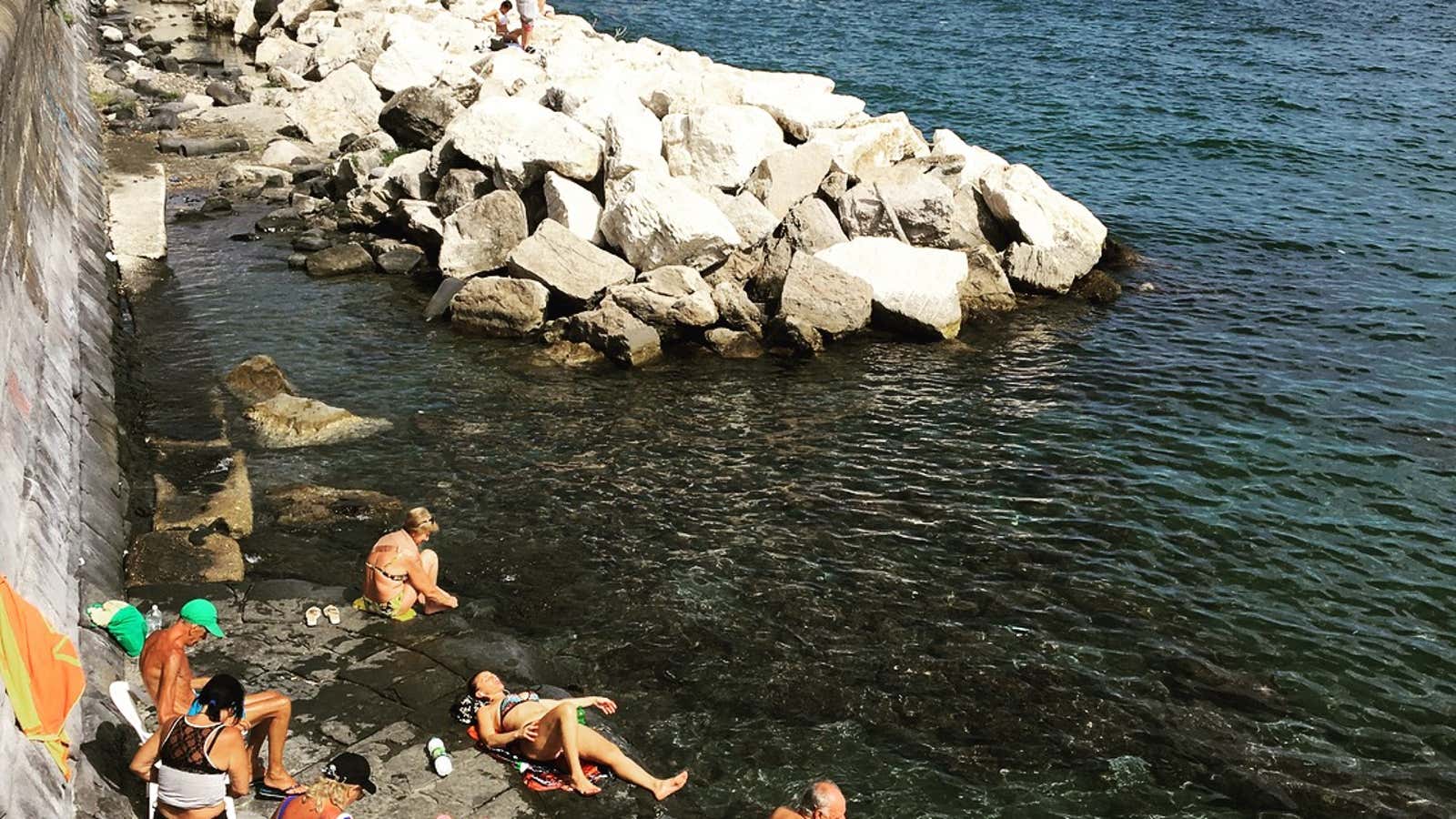As someone tasked with providing travel advice for readers, I often feel like I’m on a fool’s errand. After all, one person’s dreamy beach vacation, city break, or cruise ship cabin is another person’s overpriced packaged holiday, stressful urban jungle, or touristic nightmare. Who am I to tell them where to spend their precious time off?
That said, when people on the internet and in real life seek travel advice, virtually no one says they want to end up in a place choked with tourists and overpriced restaurants (even if the vast majority of people do end up there). They want that elusive—if ill-defined—tenet of authenticity. In my own travels, I’m always on the lookout for that feeling, the one that has me thinking: “Everyone should come here—but I hope they don’t, because then it’ll be ruined.”
It wasn’t until a recent trip to southern Italy where I realized the common thread amongst places I tend to recommend: the indifferent attitude of the locals.
Before I go on, here’s something you should know about me: Despite my profession, I am an extremely lazy traveler. Beyond creating a “minimum viable plan”—as the folks at The Innbox aptly put it recently—I do very little research or itinerary-planning before I arrive somewhere. And in spite of this—or maybe, in fact, because of it—I can tell relatively quickly if the city, town, or neighborhood, is a place I will want to return to again.
Take Naples, where I recently went during my trip to Italy. On the whole, the travel advice-dispensing internet does not like Naples. There are no shortage of Reddit threads and travel bloggers who tell you to skip it and its “graffiti and grime” or just grab a pizza and then move on to Sorrento or Capri or any number of more picturesque locations on the Amalfi coast.
And yet, while dodging extremely reckless motorbikes, swimming in the midday heat with Italian nonnas, clumsily ordering espresso at a standing-only bar, and drinking beers on a curb as I waited for said pizza, it hit me: The reason I did like this place was because Neapolitans appeared to give absolutely no figs about me (the one exception was taxi drivers, but that’s another post entirely). On the whole, they were too busy living their pleasure-centric lives.
Thanks to the locals’ indifference, if I kept a low profile, I had the pleasure of seeing that approach to life up close. Meanwhile, my experience in Sorrento, just an hour away, was the polar opposite: I felt as though it was impossible to escape being catered to. Beautiful views aside, I often felt overcharged and slightly underwhelmed. On the whole, the only locals I observed were those with whom I carried out transactions.
I’ve had this experience elsewhere, too. A month I spent in Belgrade went by without a single person so much as enquiring where I was from—they could not have cared less about my story or my money. During what was supposed to be a short stopover in the sleepy beachside town of Da Nang, in Vietnam, I didn’t see any other tourists in the neighborhood that I stayed in, and thus didn’t have to work to avoid restaurants where tourists ended up (as a result, I ditched a plan to go to the guidebook-endorsed city of Hoi An nearby, and stayed put for a week). I once spent two months living in the 18th arrondissement in northern Paris, where I had no choice but to learn how to order my drinks in broken restaurant French, as there was none of the English-speaking you’d find in the center of the city.
The preference for places where people don’t care about my presence is tied to my aforementioned laziness. If my goal when I’m traveling is to have an experience as close to that of someone who lives there as possible, it’s a lot easier when I don’t have to do extensive research to find a restaurant where locals eat. Or spend time figuring out if I’m overpaying for my nightly aperitivo. Or go out of my way to stay in neighborhoods where I’m less likely to find people like me.
You might think, “Indifference?! I want to travel somewhere where the locals are welcoming to me.” Fair enough. But what I am talking about here is not the aloof standoffishness that characterizes too-cool-for-school establishments in the Brooklyns of globe. It’s places where the daily thrum of life is not just visible but palpable, where the business of going about one’s business hasn’t been drowned out by mass tourism, and the local economy may be happy to have you, but isn’t dependent on your existence.
These places, very often, are not ones that travel magazines, internet threads, and Instagram will endorse with dreamy vistas—and that is exactly why, if you find one, you should treasure it.
